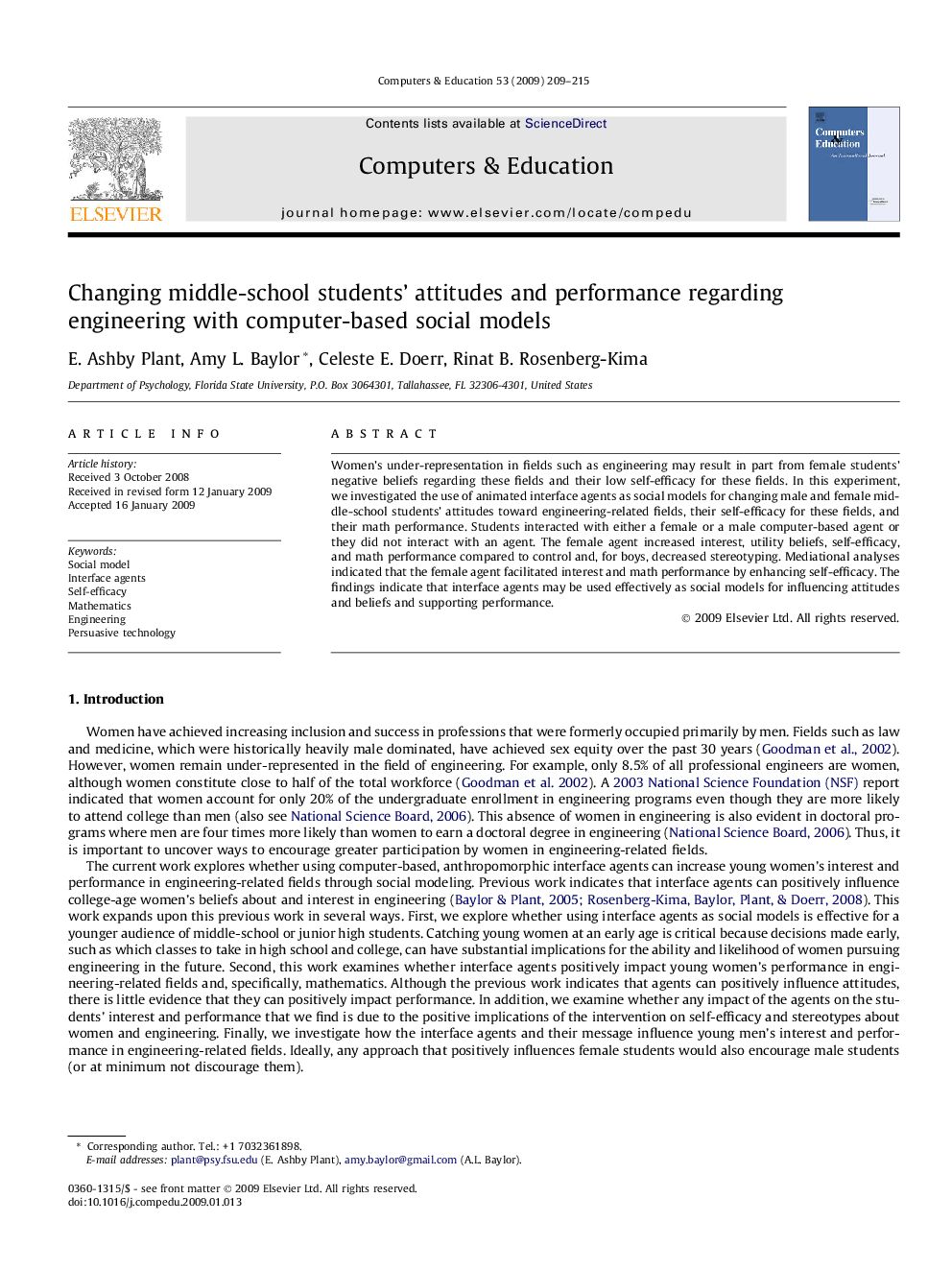| Article ID | Journal | Published Year | Pages | File Type |
|---|---|---|---|---|
| 349576 | Computers & Education | 2009 | 7 Pages |
Women’s under-representation in fields such as engineering may result in part from female students’ negative beliefs regarding these fields and their low self-efficacy for these fields. In this experiment, we investigated the use of animated interface agents as social models for changing male and female middle-school students’ attitudes toward engineering-related fields, their self-efficacy for these fields, and their math performance. Students interacted with either a female or a male computer-based agent or they did not interact with an agent. The female agent increased interest, utility beliefs, self-efficacy, and math performance compared to control and, for boys, decreased stereotyping. Mediational analyses indicated that the female agent facilitated interest and math performance by enhancing self-efficacy. The findings indicate that interface agents may be used effectively as social models for influencing attitudes and beliefs and supporting performance.
